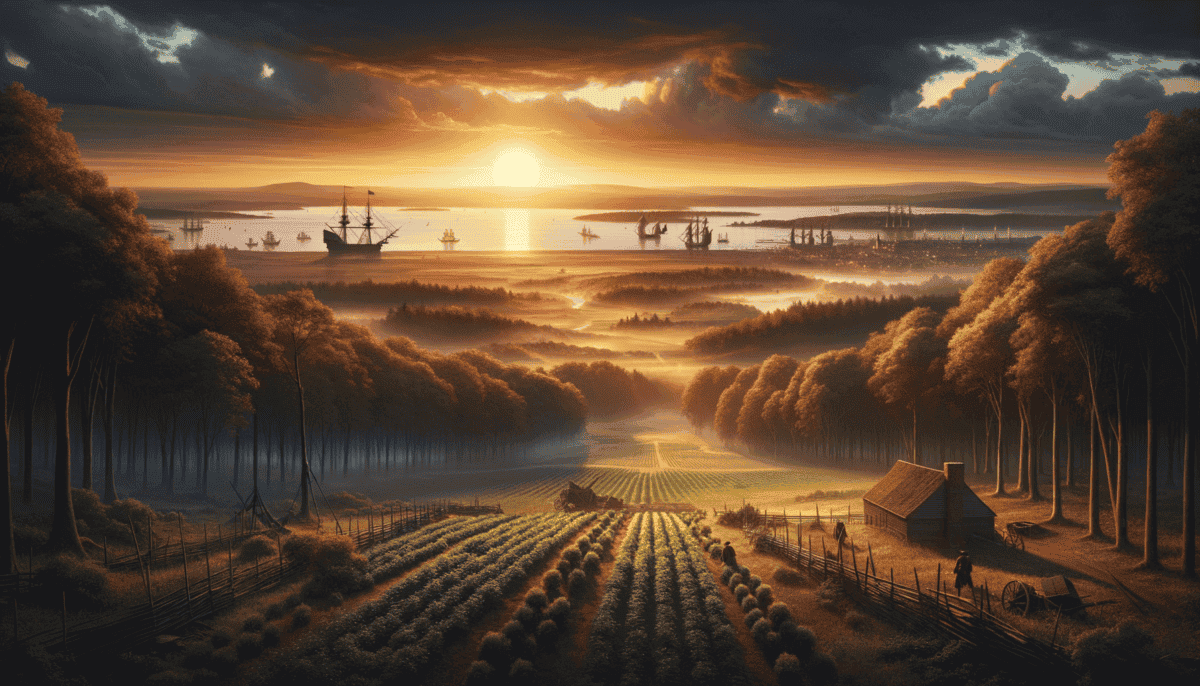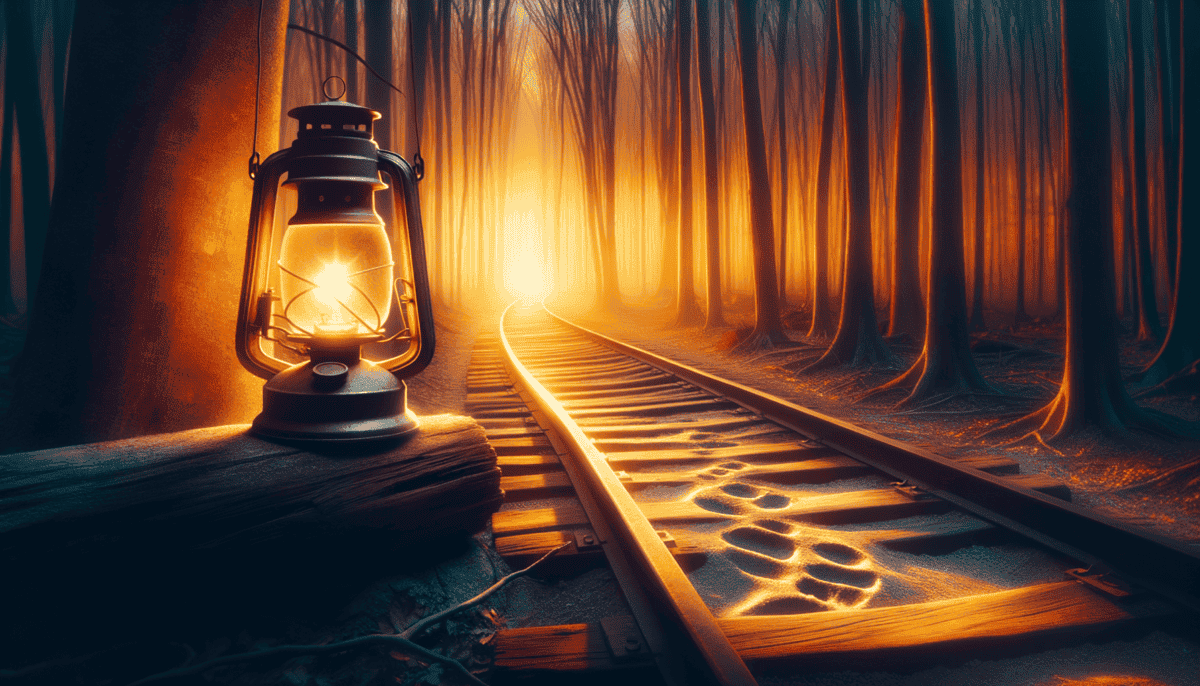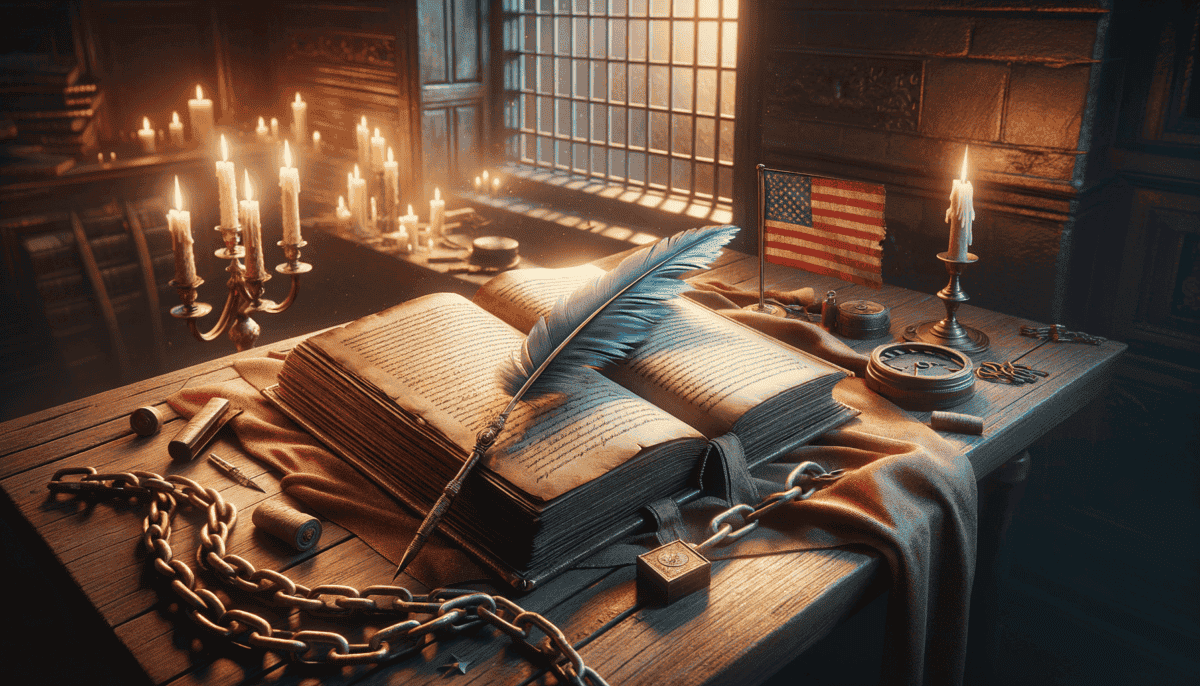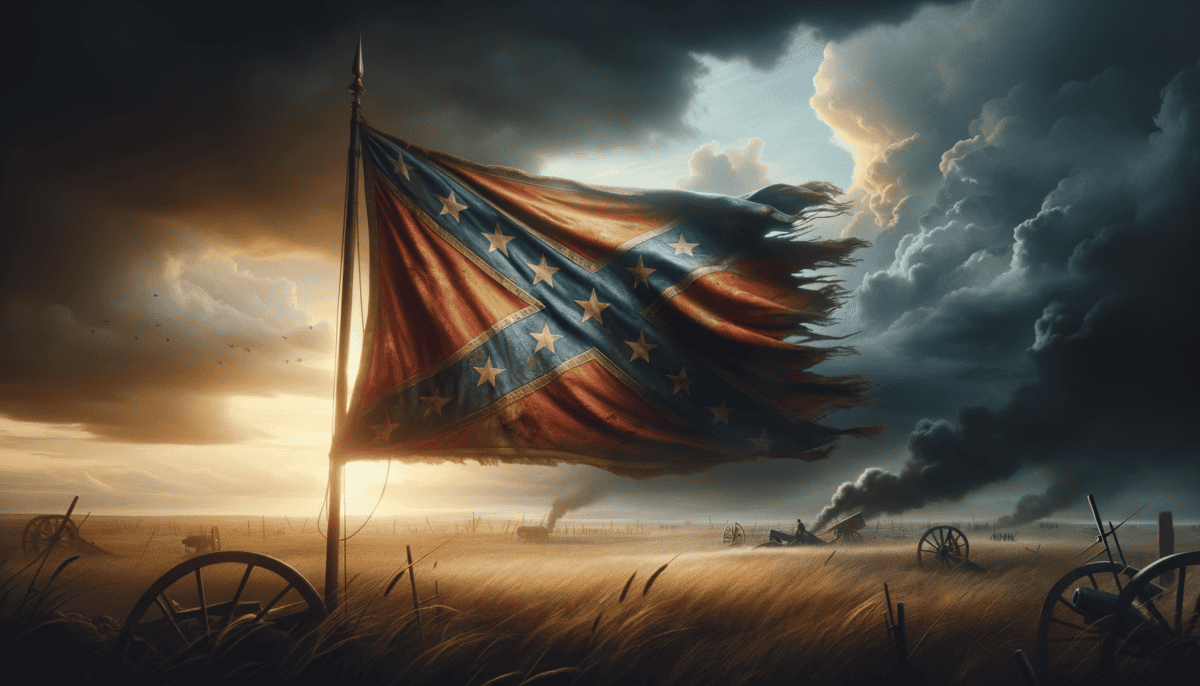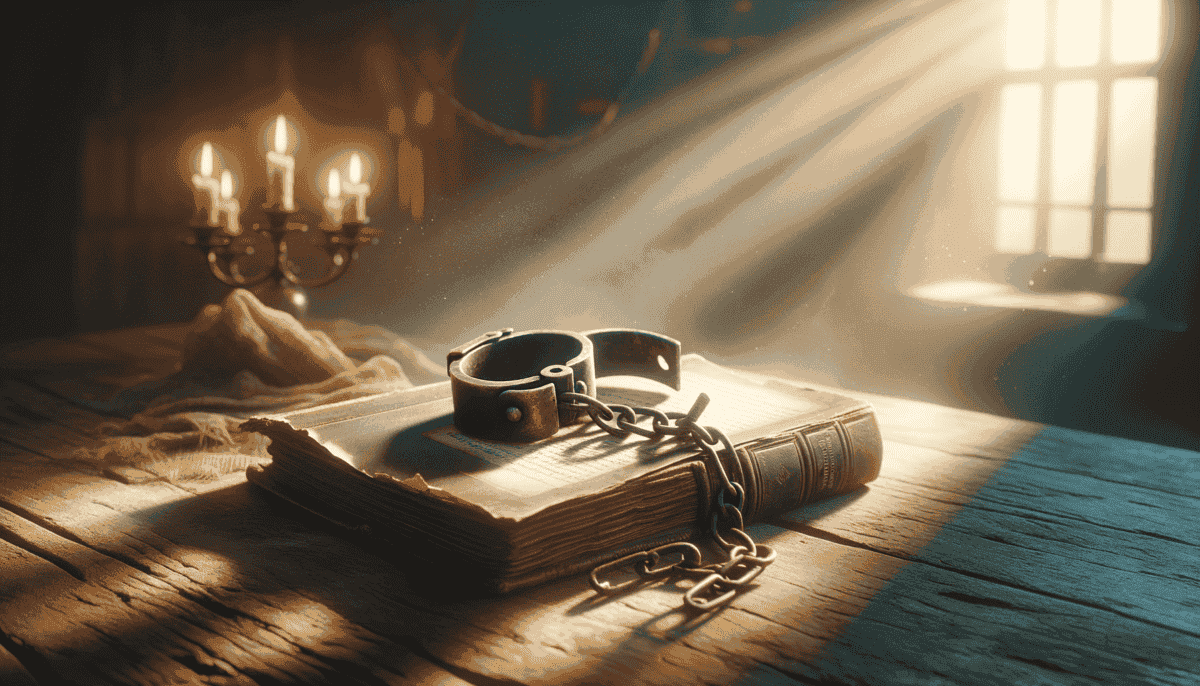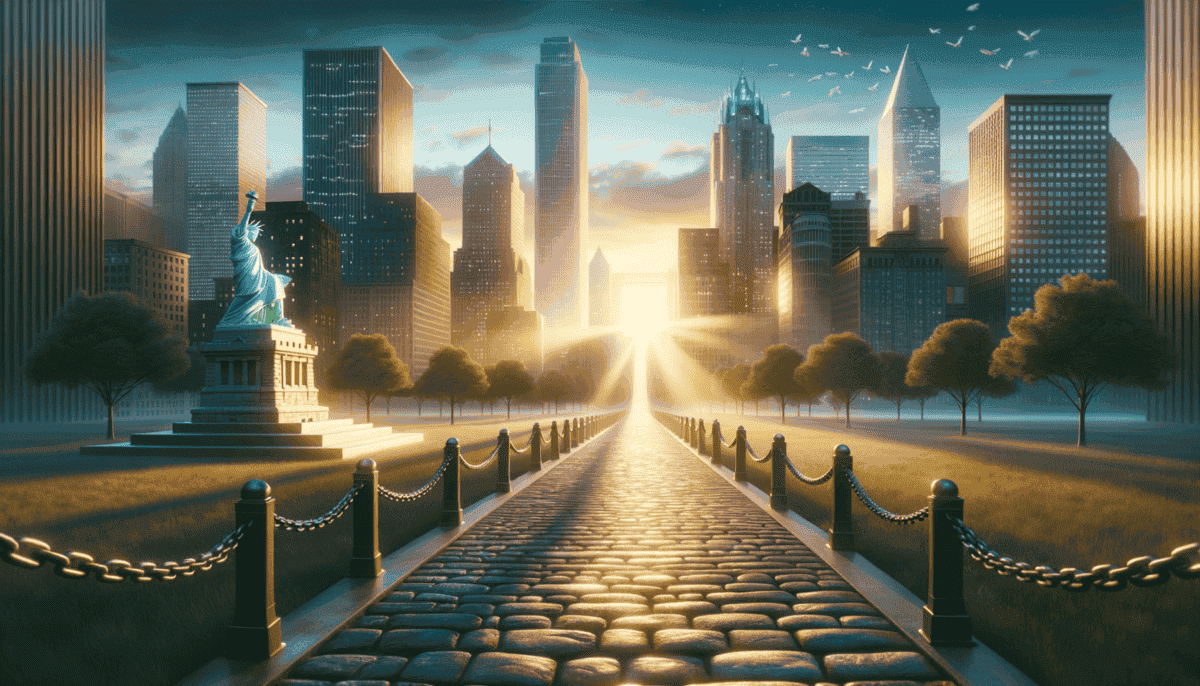A Ship Arrives in Jamestown
The warm summer breeze carried the salty smell of the sea as a strange ship appeared on the horizon. It was 1619, and the small town of Jamestown, Virginia, was about to change forever.
Sarah, a young English girl, stood on the dock with her father. Her eyes grew wide as the ship drew closer.
"Papa, what kind of ship is that?" she asked, tugging at his sleeve.
"That's a Dutch trading vessel, my dear," her father replied, squinting at the approaching boat. "But something seems different about this one."
As the ship anchored in the harbor, Sarah could see people with dark skin being led onto the deck. They wore chains and looked tired and scared. These were the first African people to arrive in the English colonies of America.
Among the captured Africans was a young man named Kunta. He had been taken from his home in Africa while gathering wood for his family. Now, he stood on the ship's deck, looking at the strange new land.
"Where are we?" he whispered to himself in his native language. The air felt different here, and the trees weren't like the ones back home.
The colonists called these first Africans "servants," but they weren't treated like the other servants in Jamestown. They had to work in the tobacco fields from sunrise to sunset.
Here's what life was like for the first enslaved people:
- They worked in hot fields all day long
- They couldn't leave without permission
- They were separated from their families
- They had to learn a new language
- They weren't paid for their work
The tobacco plants stretched as far as the eye could see. The colonists had discovered that tobacco made them rich, but they needed many workers to grow it. That's why they started buying more enslaved people from Africa.
"Master James says we need more workers," Sarah overheard one farmer tell another. "The tobacco fields are growing bigger every year."
Little did they know that this system would grow into something much bigger and much worse. The small tobacco farms would become huge plantations, and more ships would bring more captured Africans to America.
But even in these dark times, the human spirit remained strong. At night, the enslaved people would quietly sing songs from their homeland and tell stories to their children about Africa. They kept their hopes alive through their memories and their faith.
“They can chain our bodies, but they cannot chain our spirits,” Kunta would often say to the others when the overseers weren’t listening.
Despite the hardships, the enslaved people found ways to keep their culture alive. They created new forms of music by mixing African rhythms with Christian songs. They taught their children about their homeland through stories and secret ceremonies.
Year after year, more ships arrived. The tobacco fields grew larger, and the work became harder. But the spirit of resistance was already taking root, like a tiny seed that would one day grow into something powerful.
Sarah, now older, watched as more ships arrived. She began to question what she saw: "Papa, why do we treat them this way? They're people just like us."
Her father had no answer. The question would echo through American history for centuries to come, as the fight for freedom and equality was just beginning.
The sun set over Jamestown, casting long shadows across the tobacco fields. The first chapter of a long and difficult story had begun – a story of struggle, resilience, and the unbreakable human spirit. The enslaved people's dreams of freedom would be passed down through generations, growing stronger with each passing year.
The gentle waves lapped against the shore, carrying whispers of change on the evening breeze. Tomorrow would bring another day of hard work, but also another day of quiet resistance, of keeping hope alive, of dreaming about freedom.
Rising Against Chains
The moon cast long shadows across the cotton fields of Virginia. In a small cabin, Nat Turner pressed his ear against the wooden wall, listening for any sound of approaching footsteps.
“We can’t live like this anymore,” he whispered to the group gathered around him. “We must fight for our freedom.”
Sarah, now a grandmother, sat in her rocking chair, watching the night sky through her window. The world had changed since that first ship arrived in Jamestown. All across the South, brave people were fighting against slavery in different ways.
One of these heroes was Harriet Tubman, who became known as “Moses” because she led people to freedom.
“I never ran my train off the track, and I never lost a passenger,” Harriet would proudly say.
The Underground Railroad wasn’t a real train – it was a secret network of brave people who helped enslaved people escape to freedom. They used special code words to keep their plans secret:
- “Conductors” were the guides who led the way
- “Stations” were safe houses where people could hide
- “Passengers” were the people escaping to freedom
- “Station masters” were people who owned the safe houses
- “Freedom land” meant the Northern states or Canada
One cold night, young Mary huddled under a blanket in a wagon, holding her breath as it passed by slave catchers. Her conductor, a kind woman named Rachel, had hidden her under bags of grain.
“Stay very quiet,” Rachel whispered. “We’re almost to the next station.”
In the cities, free Black people worked hard to help their enslaved brothers and sisters. They opened schools, churches, and newspapers. They wrote letters to tell people about how bad slavery was.
Frederick Douglass, who had escaped from slavery himself, became a powerful speaker. He traveled around the country, telling people about the horrible things he had seen.
Back in Virginia, James, a young enslaved boy, watched as older people planned their escape. He learned their secret songs that had hidden messages about freedom:
“Follow the drinking gourd” meant to follow the North Star to freedom.
“Wade in the water” taught people to walk through streams to hide their scent from tracking dogs.
Even children found ways to resist. They learned to read and write in secret, even though it was against the law. They passed messages between cabins and helped hide food for people planning to escape.
One day, little Emma found a piece of paper and some charcoal. She carefully drew the letters her friend had taught her behind the cabin. Her mother quickly wiped them away, but smiled proudly at her daughter’s bravery.
The resistance grew stronger every day. People shared stories of successful escapes, giving hope to others. They created quilts with secret patterns that showed safe routes to freedom. They used drums to send messages across plantations.
In the North, more and more people joined the fight against slavery. They opened their homes as safe houses and raised money to help escaped slaves start new lives.
As the stars twinkled overhead, Mary finally reached safety in Pennsylvania. She looked back toward the South, thinking of all those still trapped in slavery. She made a promise to herself:
“Someday, I’ll go back and help others, just like Rachel helped me.”
The spirit of resistance spread like wildfire across the land. Each small act of defiance, each successful escape, each secret lesson taught to a child – they all added up to something bigger. The fight for freedom was growing stronger, and change was coming.
Courage Finds Its Voice
The morning sun peeked through the trees as Frederick Douglass stood before a crowd in Boston. His voice rang out strong and clear.
“No one deserves to be in chains,” he declared. “Every person should be free!”
All across the North, more and more people were joining the fight to end slavery. They were called abolitionists – people who wanted to abolish, or end, slavery forever.
Harriet Tubman wiped sweat from her brow as she led another group through the dark woods. She had already made 13 trips back to the South to rescue people.
“Freedom is worth any risk,” she would say to those who followed her.
“I had reasoned this out in my mind; there was one of two things I had a right to: liberty or death. If I could not have one, I would have the other.”
In Philadelphia, a young girl named Sarah watched as her mother helped print newspapers that told the truth about slavery. These were called abolitionist papers, and the most famous was “The North Star,” started by Frederick Douglass.
Important abolitionists worked in different ways to fight slavery:
- William Lloyd Garrison wrote powerful newspapers
- Sojourner Truth gave amazing speeches
- Harriet Beecher Stowe wrote books that changed hearts
- John Brown led direct actions against slavery
- The Grimké sisters taught about equality
In the quiet of her room, young Elizabeth carefully folded letters her mother had written to other abolitionists. She knew they were planning meetings and organizing ways to help more people escape.
“Mama, why do some people want to keep slavery?” Elizabeth asked.
Her mother sighed. “Some people in the South say they need slavery for their farms. But nothing can make slavery right. We must keep fighting until everyone is free.”
The fight between the North and South grew stronger. In Congress, leaders argued about whether new states should allow slavery. The country felt like it was being torn in two. ⚖️
One day, a group of children gathered around their teacher, Mrs. Adams, in a secret school for Black children in Boston.
“Remember,” she said softly, “knowledge is power. Every word you learn is a step toward freedom.”
In churches across the North, people prayed for an end to slavery. They collected money to help escaped slaves start new lives. They wrote letters to newspapers and politicians.
Samuel, a young boy in New York, listened as his father spoke at an abolitionist meeting:
“The time has come for all good people to stand up for what’s right. We cannot rest while others are in chains.”
The movement grew stronger every day. More people joined the cause. They held meetings in homes, churches, and public halls. They sang songs of freedom and hope.
One evening, as the sun set over Boston Harbor, Frederick Douglass stood with a group of fellow abolitionists. They watched ships sail in from far-away places.
“Change is coming,” he said with determination. “I can feel it in the air.”
The fight for freedom was gathering strength. In town halls and city streets, in quiet homes and loud protests, people were standing up for what was right. The great moral awakening was spreading, and there would be no turning back.
War for Freedom
Dark clouds gathered over Washington as President Abraham Lincoln sat at his desk. The year was 1861, and the nation was splitting apart. ️
“We cannot let this country break,” Lincoln said softly, looking out his window. The Southern states had left the Union because they wanted to keep slavery.
Young Tommy watched as his older brother James put on a blue uniform. “Are you going to fight?” Tommy asked.
“Yes, little brother. We’re fighting to keep our country together and to end slavery.”
At first, Black men weren’t allowed to join the Union army. But they kept asking to fight. Finally, Lincoln agreed. These brave soldiers were called the United States Colored Troops. ⚔️
“Once let the black man get upon his person the brass letters U.S… and there is no power on earth which can deny that he has earned the right to citizenship.”
Sarah, a young girl in Massachusetts, helped her mother prepare bandages for wounded soldiers. They talked about the big changes happening:
“Mama, will the slaves really be free when we win?”
“President Lincoln made a special promise,” her mother replied. “It’s called the Emancipation Proclamation. It says all enslaved people in rebel states will be free.”
Black soldiers fought bravely in many important battles:
- Fort Wagner in South Carolina
- Port Hudson in Louisiana
- Petersburg in Virginia
- Nashville in Tennessee
- Milliken’s Bend in Mississippi
In a Union army camp, James met William, a Black soldier who had escaped slavery. They became good friends while fighting together.
“I’m fighting for my family’s freedom,” William said. “And for all those still in chains.”
The war was hard and long. Many brave soldiers died on both sides. But the Union army kept fighting, getting stronger and winning more battles.
One day, a messenger rushed into a small town in Georgia with big news. Union General William Sherman had captured Atlanta!
In the fields behind Union lines, formerly enslaved people planted crops and built new lives. Children went to school for the first time. Families torn apart by slavery searched for each other.
Mary, a young girl living near a Union camp, wrote in her diary:
The war changed everyone. Soldiers learned to fight together, no matter their skin color. Northern families opened their homes to escaped slaves. Southern cities lay in ruins, but freedom was rising from the ashes.
One evening, as the sun set over a battlefield, James and William sat together, cleaning their rifles.
“What will you do when the war is over?” James asked.
William smiled. “I’m going to find my family, learn to read, and help build a new country where everyone is free.”
The fight wasn’t over, but victory was getting closer. Every day brought new hope for freedom, and brave men and women kept pushing forward, knowing they were making history.
Breaking the Chains
The sun rose over Richmond, Virginia in April 1865. The air smelled like spring flowers and freedom.
“The war is over!” shouted people in the streets. After four long years of fighting, the Union army had won. Slavery was ending at last.
Marcus, a newly freed boy, held his mother’s hand as they walked away from the plantation where they had been enslaved. “Where are we going, Mama?”
“Wherever we want, baby,” she smiled. “We’re free now.”
All across the South, formerly enslaved people celebrated their freedom. They could finally:
- Choose where to live
- Learn to read and write
- Get paid for their work
- Keep their families together
- Own property
In Washington, Congress was working on something important. They wrote the 13th Amendment to the Constitution.
“Neither slavery nor involuntary servitude… shall exist within the United States.”
Sarah, now a little older, watched her father teach at a new school for Black children. “Papa, why are some people angry about the school?”
“Change isn’t easy,” he explained. “But education is the key to a better future.”
William, the brave soldier from the war, kept his promise. He found his family and started a small farm. Now he was teaching his children to read.
“Daddy, tell us about the war again,” his daughter asked one evening.
“It was hard, but we fought for freedom. Now you can go to school and follow your dreams.”
Not everything was easy. Some people tried to stop Black Americans from voting or owning land. But brave leaders kept fighting for equal rights.
Marcus’s mother joined a group helping other freed people find their families. She wrote letters and posted notices in newspapers. Sometimes, there were happy reunions.
One day, Marcus saw something that made him smile. A Black man was elected to help make laws in their state. Things were changing.
In cities and towns, new businesses opened. Black churches became centers for community life. Children played together in schoolyards.
But there was still work to do. James, the Union soldier, wrote to his friend William:
“The chains are broken, but the journey isn’t over. We must keep working for true equality.”
As the sun set on another day of freedom, Marcus looked at the stars. He thought about all the changes he had seen. His mother was right – they could go anywhere now. The future was full of possibilities. ⭐
The story of freedom was just beginning. Black Americans were building new lives, creating communities, and working toward a better tomorrow. Each small step forward was a victory worth celebrating.
Legacy and Continuing Journey
The morning light streams through Sarah’s classroom window. She’s now a teacher, just like her father was.
“Today, children, we’re going to talk about how far we’ve come and where we’re going,” Sarah tells her students with a warm smile.
Marcus, now grown with children of his own, visits schools to share stories about the journey to freedom. His mother’s words still echo in his heart: “Wherever we want, baby. We’re free now.”
• Black Americans could vote
• Schools opened for everyone
• Black leaders helped make laws
• Families stayed together
• People owned their own homes and businesses
“Tell us about the old days, Grandpa William,” his grandson asks, sitting on his knee. William’s eyes grow misty as he remembers being a soldier.
“We fought for freedom, little one. And now look at you – reading books, going to school, dreaming big dreams.”
Sarah watches her students play together at recess – children of all colors laughing and sharing. She remembers her father’s words: “Change isn’t easy, but it’s worth fighting for.”
James’s daughter became a doctor – something that would have been impossible before. She helps everyone who comes to her clinic, remembering her father’s words about equality. ⚕️
“Things aren’t perfect yet,” Marcus tells his children. “But we keep moving forward. Each generation makes things a little better.”
In neighborhoods across America, new stories unfold:
A young girl becomes the first Black mayor of her town
A boy wins a science competition at school
A woman starts her own successful business
Communities come together to help each other grow
The old plantation where Marcus once lived is now a museum. People come to learn about the past and promise to build a better future. ️
“What’s the most important lesson?” Sarah asks her class.
A small hand raises. “That everyone deserves to be free and treated fairly!”
Marcus’s grandson becomes a judge, wearing a black robe in the same courthouse where his ancestors weren’t allowed to enter. ⚖️
William’s great-granddaughter reads his old letters and feels proud. She writes in her journal: “Their courage lights our way forward.” ✨
Sarah ends each school day with a simple message: “Remember where we came from, dream about where we’re going, and help each other along the way.”
The story that began in chains continues in freedom. Each generation adds new chapters of hope, strength, and progress. The dream of true equality lives on in hearts young and old.
As the sun sets on another day in America, children of all backgrounds play together in parks where “Whites Only” signs once stood. They’re writing their own stories now – stories of friendship, opportunity, and dreams coming true.
The journey isn’t over, but the path ahead is bright with possibility. Just as the stars guided those seeking freedom long ago, hope still lights the way forward to a better tomorrow for everyone.

